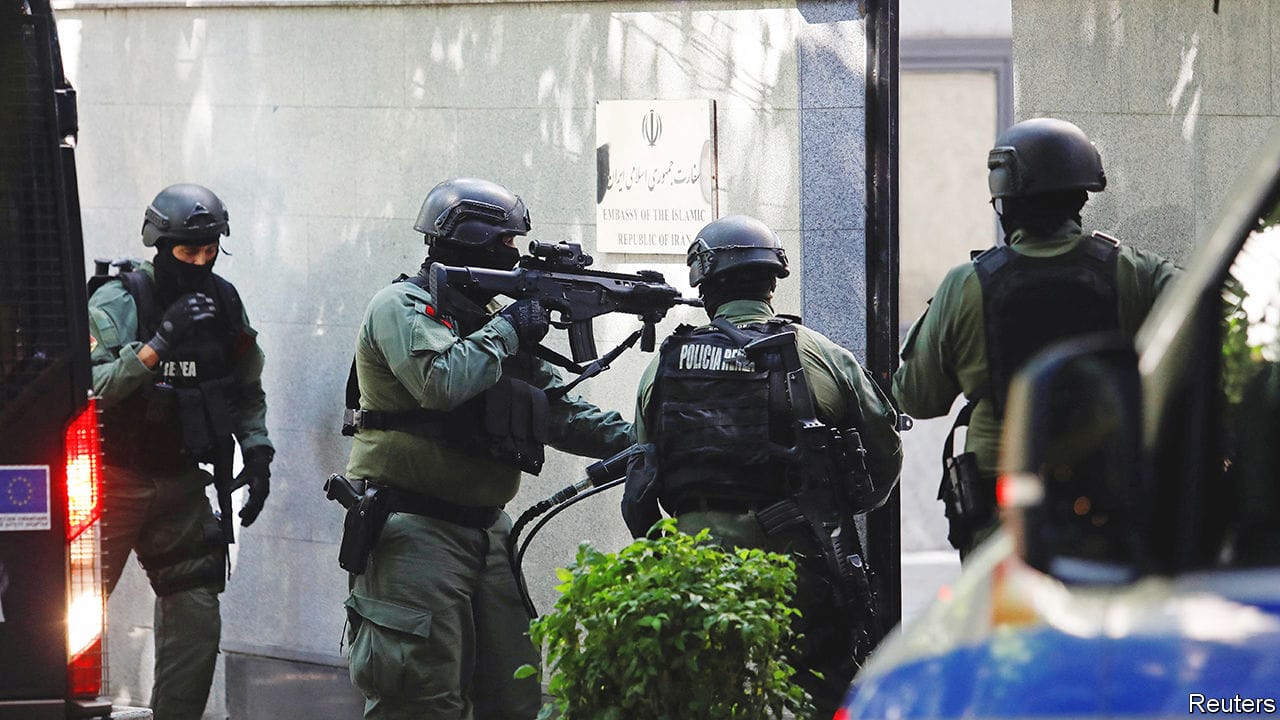- by Goma
- 01 30, 2025
-

-
-
Loading

Loading

at their country’s embassy in Tirana, Albania’s capital, bundled sensitive documents into a barrel and set them alight in the early hours of September 8th, reported Reuters. They were in a rush; a day earlier, they had been given 24 hours to leave. Hours later local police stormed into the empty mission. The episode was a dramatic culmination of an Iranian cyber-offensive weeks earlier; it highlights Iran’s central role in a series of swirling cyber-conflicts. In late July, bomb threats and cyber-attacks forced the People’s Mujahedeen Organisation of Iran (), also known as the Mujahedeen-e Khalq (), an Iranian opposition movement-cum-cult, to cancel a planned summit in Albania, where around 3,000 of its members live in a camp 30km north-west of Tirana. The is reviled by Iran, not least for its support for Saddam Hussein in the Iran-Iraq war of the 1980s, and is patronised by some hawkish American and assorted European politicians. Though America and the no longer deem it a terrorist organisation as they once did, Iran continues to view the group as a threat. Last year an Iranian diplomat in Vienna was convicted by a Belgian court of attempting to bomb another rally.